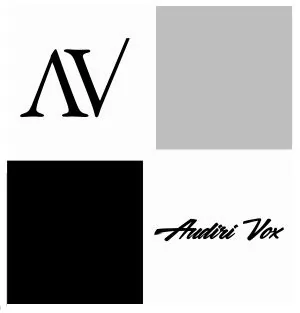United Arab Emirates (UAE) is the commercial hub in the Middle East. The country is a union of seven emirates, namely, Abu Dhabi, Dubai, Sharjah, Ajman, Um Ul Quwain, Ras Al Khaimah and Fujairah. The country is also a member of the six countries alliance forming the Gulf Cooperation Council (GCC), enabling free movement of goods in-between the UAE, Saudi Arabia, Kuwait, Qatar, Oman and Bahrain. Ideally located in the Arabian Peninsula, UAE is an entrance to the Middle East from South and Central Asia. It also provides direct sea access to Africa, Europe, Australia and North America. Due to its geographic location, liberal government policies, numerous free trade zones, modern infrastructure, hassle-free repatriation of capital, security and tax-free regime, it has come a long way since its inception. Today, UAE serves as a hub of cross-border trade between Asia, Africa, Middle East, Europe and North America.
In 1992, the UAE government promulgated its first federal legislation concerning the protection of intellectual property rights. Through frequent changes in laws and policies, consistent training of staff, enforcement officials and judiciary, acceding to international conventions and treaties, collaboration with international enforcement agencies, and implementing electronic filing system, today, the UAE is at the forefront of intellectual property protection in the region.
Those familiar with the country would recall the time when it took almost two years to obtain registration of a trademark and seven to eight years to register a design or patent in the UAE. The country has come a long way, and much to its credit, these timeframes have decreased drastically. Today, a straightforward trademark registration takes around three months, and enforcement actions can be conducted almost immediately. Recordals of various types, including assignment, license, renewal, change of name and address, can be completed within a week.
The UAE trademark registration procedures include an examination on absolute and relative grounds, publication in the UAE Trademarks Journal and two Arabic daily newspapers, a thirty days (non-extendible) opposition period, followed by the issuance of a registration certificate.
A few take-home points for foreign associates and brand owners interested in seeking registration of trademarks in the UAE are as follows:
- Deadlines in the UAE are non-extendible.
- A power of attorney legalized from the UAE consulate is required at the time of filing the application. Post legalization, a power of attorney needs to be attested from the Ministry of Foreign Affairs in the UAE, before it can be submitted to the Trademark Office; hence, it should reach the UAE trademark agent a couple of days before the deadline.
- Multi-class filing is not possible in the UAE; a separate application for each class needs to be filed.
- The UAE follows the NICE Classification of goods and services.
- The country is a signatory to the Paris Convention; hence, convention priority can be claimed within six months of the initial filing. A certified copy of the priority document is required for claiming priority.
- Absolute grounds check includes a check to ensure that the trademark meets the morality principles followed in the UAE. This means that the trademark should not have an adverse connotation or immoral depiction. Besides, the following trademarks cannot be registered in the UAE.
-
- Trademarks having no property or distinctive character; descriptive marks or ordinary drawings and pictures of products.
- Trademarks breaching public morals or violating public order.
- Public emblems, flags and other logos, and imitations thereof, of the State, the Arab or international organizations or an institution thereof or any foreign country except under its authorization.
- Trademarks, and imitations thereof, of the Red Crescent or Red Cross.
- Trademarks that are identical or similar to symbols having a purely religious character.
- Geographical names, if their use would create confusion with their origin or source.
- The name, title, picture or logo of a third party unless they or their heirs approve the use and registration.
- Particulars of honorary degrees to which the applicant cannot prove legal entitlement.
- Trademarks that may mislead the public or include misstatements of origin or source or other properties as well the trademarks that include a fictitious, imitated or forged trade name.
- Trademarks owned by prohibited natural persons or legal entities.
- A trademark the registration of which for some goods or services may result in undervaluing other products or services distinguished by such mark owned by a third party.
- Trademarks including the following words or expressions: Concession, Concessionaire, Registered, Registered Drawing, Copyright, Imitation is Considered Forgery or such similar words and expressions.
- Trademarks composed of national and foreign medals, coins and bank notes.
- Trademarks which are identical to or are a mere translation of a well-known trademark or another mark already registered in the UAE.
- International well-known trademarks which are famous in the UAE, may not be registered unless authorized by the owner.
- A cancelled registration may not be registered in the name of a third party, unless authorized by its owner or the Court.
- A well-known trademark may not be registered by a third party to distinguish products or services that are not similar to those distinguished by the original trademark if:
-
- The use of the trademark indicates a link between the goods and services of the applied mark and the goods or services of the well-known trademark.
- Its use may prejudice the rights of the owner of the original trademark.
- Oppositions in the UAE can be filed on grounds of local and foreign registrations and use. In order to succeed in an opposition based upon an unregistered mark, it is essential that the mark is well-known among the UAE public.
- The 30 days opposition period is non-extendible.
- In order to file an opposition, the original power of attorney duly legalized from the UAE consulate is required at the time of filing.
- Other deadlines, including appeal periods, whether before the Trademark Office, Committee or Court are non-extendible.
- Late payment of publication or registration fees results in a fine.
- Registration is granted for a period of 10 years and is renewable perpetually for similar periods.
- Late renewal with fine can be conducted within three months of the initial expiry date.
- Cancellation of a registered trademark can be sought by an interested party through filing a cancellation action before the Court of First Instance if:
-
- The trademark was not used for a period of five years from the date of its registration.
- The trademark was registered illegally. Such an action includes bad faith claims and is not struck by laches.
In addition to the aforementioned main points, it is recommendable to conduct pre-filing trademark searches in order to clear the mark before filing. Search results can be obtained within one day. It is also recommended to clear and register trademarks in English as well as Arabic languages, as the official language of the UAE is Arabic. Although cross-searches are usually not conducted during examination, at times, conflicting marks registered in class 35 are cited against applications filed in other classes; hence, registering the mark in class 35 enhances protection and provides a valid cause of action in trademark vs trade name disputes.
Seeking local legal counsel for clearance, registration, divestiture and enforcement matters is suggested, as the laws and procedures in the UAE at certain points do not correspond with the laws and procedures of other countries.
The content of this article is intended to provide a general guide to the subject matter. Specialist advice should be sought about your specific circumstances.

